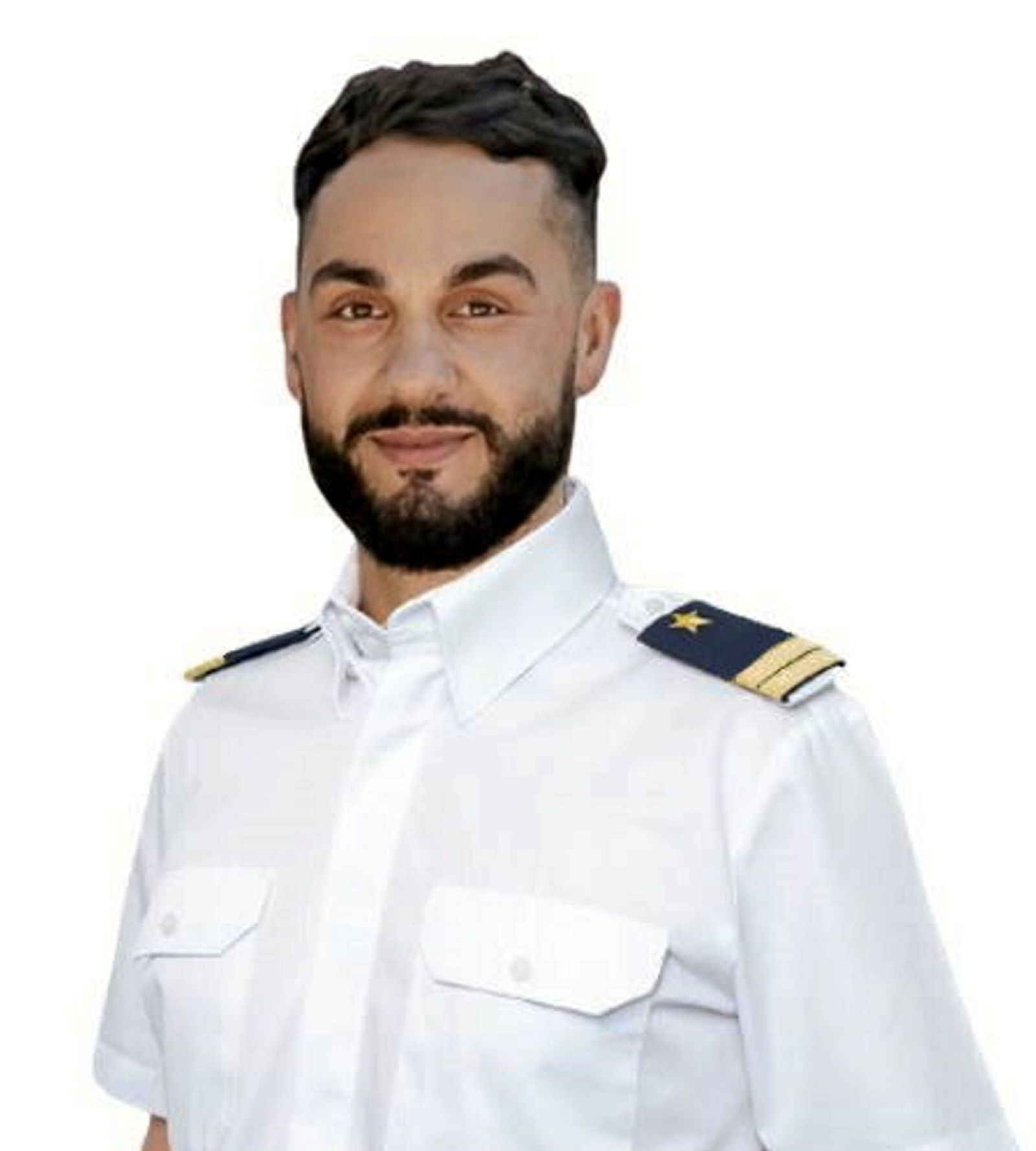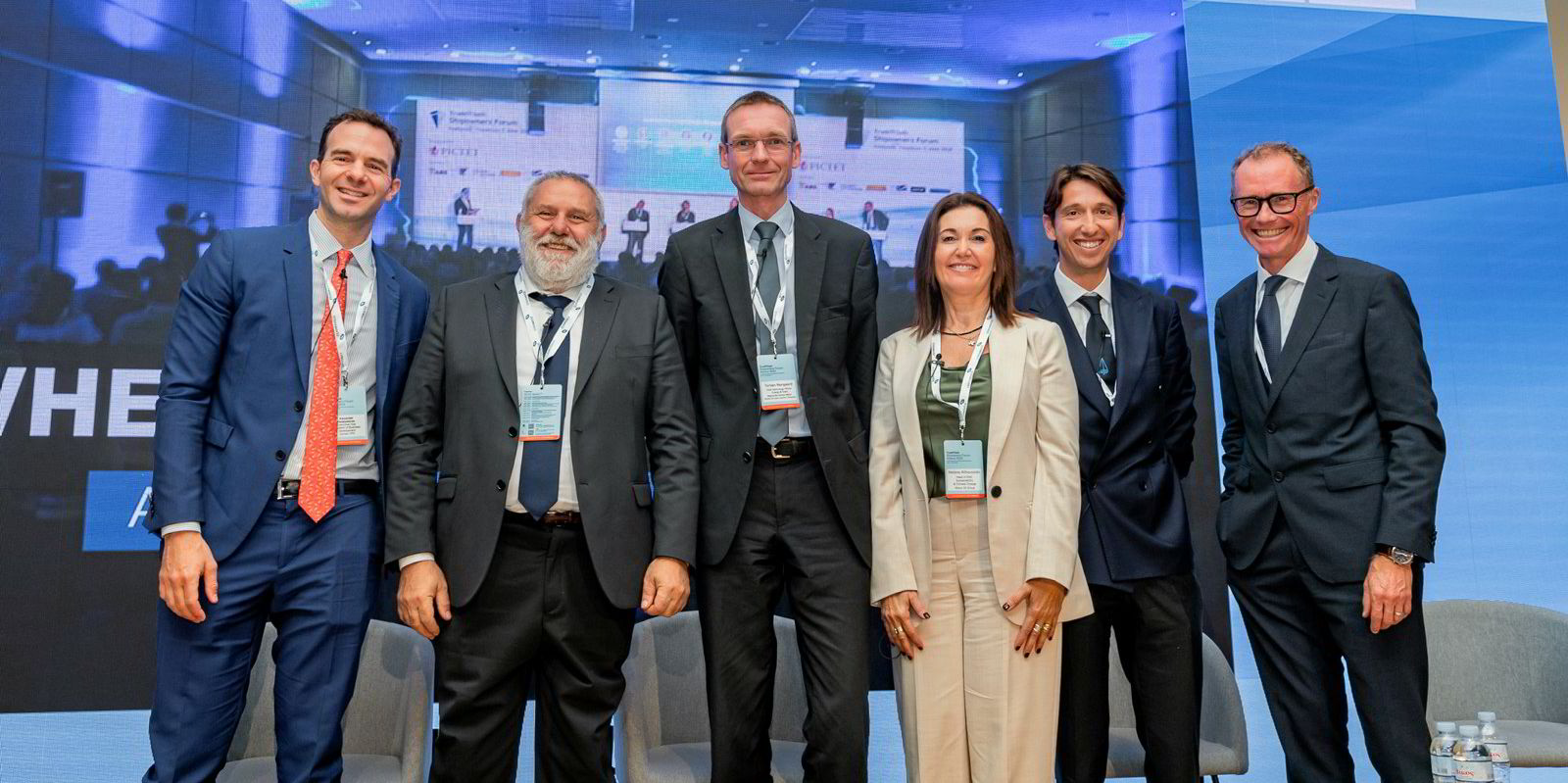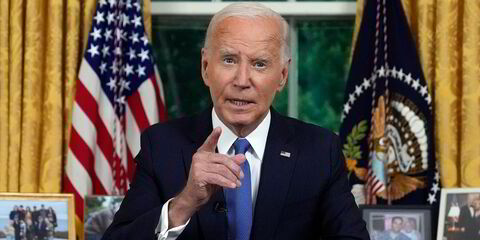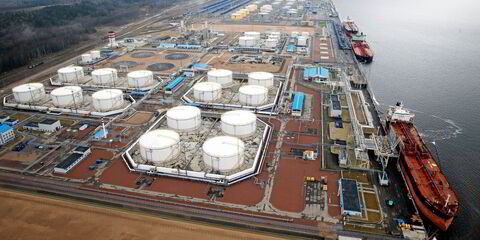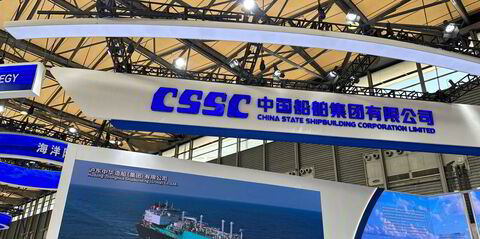Vladimir Zoric, a fleet personnel officer for MOL Tankship Management, argues it is not enough to reduce a ship’s carbon footprint. What about the emissions created by airline travel for crews sent to man them?
He makes his case in an award-winning entry to the 2023 Global Maritime Forum essay competition, which this year posed the question: “What does an inclusive transition to a sustainable maritime industry mean to you — and what are your recommendations to industry leaders and policymakers on how this could be achieved for future generations?”
The Montenegrin seafarer, 31, who studied as a nautical technician at the Maritime Gymnasium in Kotor, was a joint winner alongside Saki Inoue of Japan, a student of oceanology at Kobe University, and Shareefa Jewan of Mauritius, a senior business consultant with Ernst & Young.
These young talents will be honoured at the upcoming Global Maritime Forum Annual Summit in Athens that takes place from 17 to 19 October.
The Global Maritime Forum received 112 essay submissions from more than 35 countries.
“The maritime industry’s future hinges on its ability to adapt, innovate, and prioritise sustainability. The Future Maritime Leaders essay competition offers a unique platform for emerging leaders to share their ideas for an inclusive transition towards a sustainable maritime future,” said Christine Loh, chief development strategist at Hong Kong University of Science & Technology’s Institute for the Environment and chair of the selection committee.
Here is Zoric’s essay, which proposes a globe-spanning initiative to pool local resources.
“Everyone has heard of archaic sailing boats, right? Well, if you were there in 1750 and someone told you that in a couple of decades, you would have a steam-powered boat, it would have been shocking and impossible to believe, maybe even hard to understand.
I think that the Worldwide Crew Pool (WCP) could be the next thing like that in the maritime industry.
Having been a seafarer for a decade and now being in both the fleet personnel department and health, safety, quality & environment department of MOL’s Tanker Division, I came across the issues and challenges we face in terms of having properly trained and qualified crews, as well as the processes of a crew change and its environmental impact.
As a seafarer I have experienced travelling for countless hours, changing numerous flights and continents in order to get on and off a ship. This was a nuisance that affected my physiological and psychological state, especially in those crucial moments when joining the vessel, where attention was needed the most, not to mention additional exhaustion when getting back home to my family.
Also, when you think of all the similar trips that are happening all the time, one can only imagine how this is leaving a trail of carbon emissions. As part of my current job, I am also getting to know the difficulties of people who are responsible for manning the vessels properly.
I propose the WCP would be a centralised system that would manage fleet personnel processes of all shipping companies under a single umbrella.
One of the main strengths of the pool would be establishing crewing and training centres worldwide, in the first instance based in the busiest ports on every continent, then widening the network strategically and locally.
In order for this to work, a unified budget formed by all parties would be needed. In our training centres, people would be provided with a unitary standard of qualification and training, all in accordance with the International Maritime Organization and ship-type specific requirements.
A well-defined and maintained proficiency will help ensure there are no differences between dissimilar nations. By doing this, we could intertwine human potential, especially in developing countries and particularly the Global South, with the new style of crew change where the vessels would get local crew based on the vessel trading area.
For example, if the vessel is trading between Europe and Africa, she would have crew exchanged through the training centres in Gibraltar, Rotterdam, Spezia, Mombasa, Cape Town and Accra.
Air travel would be lowered to a minimum level by such planning.
Everyone is lately preoccupied with solving zero-carbon emissions through the use of carbon-neutral and green fuels, which is of the greatest importance.
However, we need to take care of another very important practical aspect, which is the real need for air travel that adds up to 2.4% of global CO2 emissions while the whole shipping industry is responsible for 3% of CO2 emissions globally.
The WCP focuses on cutting air emissions to a bare minimum and to the cases of necessity, while promoting land transport, particularly rail, considering the fact that we should be using more eco-friendly ways of travelling.
I believe the WCP has the potential to contribute to the transition towards a zero-emission maritime industry that would be inclusive and ensure no one is left behind.
The above presented, in my opinion, is going to happen sooner or later. It is up to us to decide when we will start the process, and given the current situation the world is faced with, it should be better sooner rather than later as it seems we are short of time for action.
I am not saying we need to dream big. I am saying to set the goal so high that it will only seem impossible until it is done.
A goal so bright that it can be seen from every direction and by everyone involved.”
This essay has been edited for length.
